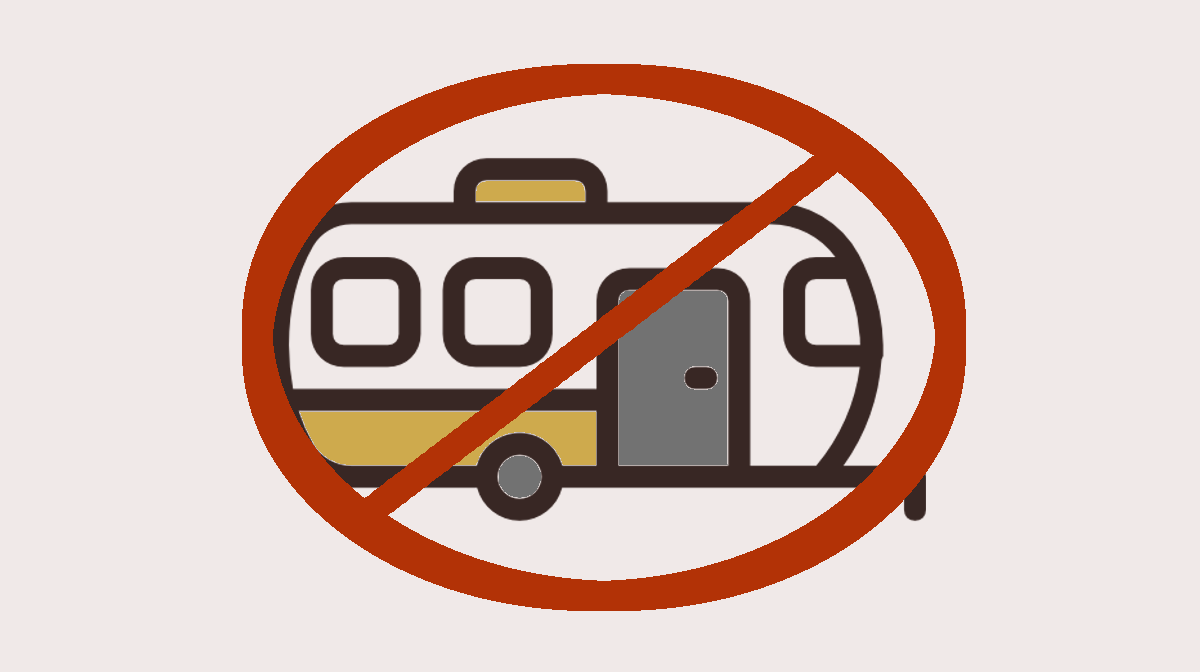Accessibility is a word with multiple meanings. To the layman it refers to how easy it is for someone to get in or out of a location or new concept. Within web design it refers to adjustments made to the design and code of a website to make it useful for visitors with disabilities. Not everyone who visits a website is equally capable of seeing, hearing, moving their hands or reading.
There are several different guidelines published by international web development authorities that can be used to rate the accessibility of websites and individual pages within those sites. The two primary options are the Web Content Accessibility Guidelines published by W3C and Section 508 of the US Workforce Rehabilitation Act. The former list is voluntary. The latter is mandatory for all US federal websites. Both can also be used as metrics for gauging the accessibility of civilian websites, including apartment search sites.
You may have never considered what it's like to interact with websites when you have a disability. Some of the common problems faced by these users are described in detail on the W3C's change log for their newer WCAG version 2.1.
Today I'm going to use the Web Accessibilty Evaluation Tool (WAVE) browser extension by WebAIM, which reveals accessibility problems, to analyze seven different popular apartment listing websites. WAVE looks at a site's code and compares it against the slightly dated version 2.0 of the WCAG and against the Section 508 guidelines. While it doesn't provide a score, it does provide a summary of important errors, less important alerts, along with the number of adjustments that are in place to improve accessibility.
Here are some of the things that WAVE looks for:
- Alt text that can be used by screen readers to explain images via screen reader technology.
- Subtitles, pause/stop and volume controls for videos.
- Simplified and organized layouts, including proper use of headings and lists.
- Text with a color contrast of 7:1, which can be resized up to 200% without loss of clarity or content.
- Text blocks should be no wider than 80 characters, properly spaced.
- Text should be text, not an image of text.
- Every link, button and other site interaction should be possible with only a keyboard.
- No strobe effects.
- No empty or uninformative links. (e.g., fully linking "For more information click here" or only linking the word "here.")
- Properly indicate errors in forms.
Note that this is not an exhaustive list, but it does give you some idea of the sort of things that could throw an error if missing during our review.
For each of these sites, I checked the homepage, a search results page and a listing detail page. I also checked the RentConfident site and the federal Census.gov as points of comparison. For my search term I used "Chicago, IL" with the exception of the Census, where I used "Illinois" for a more robust selection of search results. Listing detail pages were chosen at random. In the case of map based sites I visited listing detail pages directly if possible rather than using the result popups over the map, although I could not find a mapless detail page on Hotpads. For the census site I used the Illinois QuickFacts page as a substitute for listing details. For the RentConfident results I used our blog search results page, and for our detail page I used our sample Signature report, one of the heaviest pages we've got.
I should also note that I used the desktop version of all of these sites. There are separate guidelines for mobile sites and apps that go beyond the scope of this article, such as rotation control, zoom control, and far more concessions for those with fine motor disabilities.
In the table below, the column we've called "HTML5/ARIA" refers to parts of the underlying code that have been included as a concession for disabled visitors.
| Site |
Problems |
Concessions |
Ratio |
| Errors |
Contrast
Errors |
Alerts |
Total |
Structure
Elements |
HTML5/ARIA |
Total |
Prob. : Conc. |
| Apartments.com |
| Main |
44 |
100 |
31 |
175 |
69 |
32 |
101 |
|
| Search |
897 |
130 |
157 |
1184 |
158 |
154 |
312 |
|
| Detail |
64 |
125 |
124 |
313 |
191 |
69 |
260 |
|
| Totals |
1005 |
355 |
312 |
1672 |
418 |
255 |
673 |
2.5 : 1 |
| Craigslist Chicago |
| Main |
6 |
2 |
3 |
11 |
67 |
12 |
79 |
|
| Search |
22 |
127 |
133 |
282 |
16 |
318 |
334 |
|
| Detail |
1 |
4 |
5 |
10 |
8 |
25 |
33 |
|
| Totals |
29 |
133 |
141 |
303 |
91 |
355 |
446 |
1 : 1.5 |
| Hotpads |
| Main |
33 |
94 |
8 |
135 |
76 |
3 |
79 |
|
| Search |
143 |
139 |
32 |
314 |
49 |
51 |
100 |
|
| Detail |
99 |
77 |
17 |
193 |
30 |
52 |
82 |
|
| Totals |
275 |
310 |
57 |
642 |
155 |
106 |
261 |
2.45 : 1 |
| Padmapper |
| Main |
1 |
70 |
1 |
72 |
4 |
4 |
8 |
|
| Search |
12 |
173 |
3 |
188 |
2 |
460 |
462 |
|
| Detail |
51 |
71 |
8 |
130 |
19 |
129 |
148 |
|
| Totals |
64 |
314 |
12 |
390 |
25 |
593 |
618 |
1 : 1.6 |
| Realtor.com |
| Main |
15 |
33 |
81 |
129 |
78 |
118 |
196 |
|
| Search |
89 |
142 |
161 |
392 |
169 |
64 |
233 |
|
| Detail |
54 |
24 |
203 |
281 |
156 |
135 |
291 |
|
| Totals |
158 |
199 |
445 |
802 |
403 |
317 |
720 |
1.1 : 1 |
| Zillow |
| Main |
4 |
9 |
89 |
102 |
64 |
19 |
83 |
|
| Search |
137 |
123 |
94 |
354 |
146 |
136 |
282 |
|
| Detail |
14 |
42 |
92 |
148 |
88 |
215 |
303 |
|
| Totals |
155 |
174 |
275 |
604 |
298 |
370 |
668 |
1 : 1.1 |
| Zumper |
| Main |
16 |
37 |
8 |
61 |
23 |
87 |
110 |
|
| Search |
15 |
74 |
5 |
94 |
63 |
74 |
137 |
|
| Detail |
10 |
112 |
14 |
136 |
24 |
136 |
160 |
|
| Totals |
41 |
223 |
27 |
291 |
110 |
297 |
407 |
1 : 1.4 |
| Census.gov |
| Main |
11 |
16 |
50 |
77 |
17 |
27 |
44 |
|
| Search |
10 |
64 |
85 |
159 |
16 |
49 |
65 |
|
| Detail |
89 |
54 |
19 |
162 |
74 |
82 |
156 |
|
| Totals |
110 |
134 |
154 |
398 |
107 |
158 |
265 |
1.5 : 1 |
| RentConfident |
| Main |
14 |
22 |
4 |
40 |
18 |
12 |
30 |
|
| Search |
11 |
21 |
100 |
132 |
23 |
43 |
66 |
|
| Detail |
12 |
10 |
19 |
41 |
66 |
106 |
172 |
|
| Totals |
37 |
53 |
123 |
213 |
107 |
161 |
268 |
1 : 1.3 |
Analysis
We went into this with the thought that some sites would be considerably more accessible than others, and also the thought that no site would be perfectly accessible. We were proven correct on both counts. Even the Census site, which as a federal government site must adhere to the Section 508 guidelines, was found to be lacking with one of the weaker error to concession ratios.
We were quite pleased that RentConfident came out with the lowest number of total errors and one of the better error to concession ratios, but given that even our own site had some pretty glaring errors we're not exactly covered in glory here. (We'll work on it.)
Search result pages were the main stumbling block for most of these sites. It's easy to understand why this could occur, given how many moving parts are involved in the common map-based layout used by most of them. Color contrast was another big problem, and one that the good folks who work in web design graphics departments must confront daily. High contrast sites just don't look all that pretty. Fortunately there are browser addons that can help those with trouble seeing low contrast text to adjust the colors of a website independently, but it is of course far more pleasant to be able to browse the web without such tools regardless of your eyesight.
Apartments.com had a shockingly high number of errors across the board, especially when compared with some of the other options. However when viewed strictly from the perspective of error to concession ratio, Hotpads was almost as bad. They might have had fewer errors, but they're simply doing nothing at all to help offset them.
In terms of raw errors, we were surprised to see the graphic-heavy Zumper actually holding its own against the notoriously bland Craigslist, proving that it is possible to make a visually appealing site without sacrificing too much in terms of accessibility.
Of course, all the objective scoring in the world cannot compare with the actual experience of browsing through apartment listings with a disability. Map-based listing sites with all their tiny pins can be torture for someone who cannot use a mouse or someone lacking in visual acuity. Comparing Zillow's pale purple map pins, Apartments.com's dark green pins and Hotpads' orange pins with the mindset of someone with these limitations made it very clear to us that the user experience for the disabled can vary greatly even across sites with almost identical interfaces. Craigslist and Realtor.com win the day on the map front by offering optional maps but defaulting to text or image based search results.
None of the sites we visited used videos prominently so they were all mostly spared from the animation-related guidelines.
Overall, for apartment hunters with disabilities we recommend the current versions of Padmapper, Zumper or Craigslist, not only for their comparatively low number of errors but also for the efforts they're making to increase the accessibility of their sites. Congrats to all three companies and thank you for going the extra mile.
If you find this topic of interest, maybe you can try out WAVE yourself on a few sites that you visit regularly and see how they stack up. Let me know in the comments if you find any superstars or completely inaccessible sites.
RentConfident is a Chicago startup that provides renters with the in-depth information they need to choose safe apartments. Help us reach more renters! Like, Share and Retweet us!






